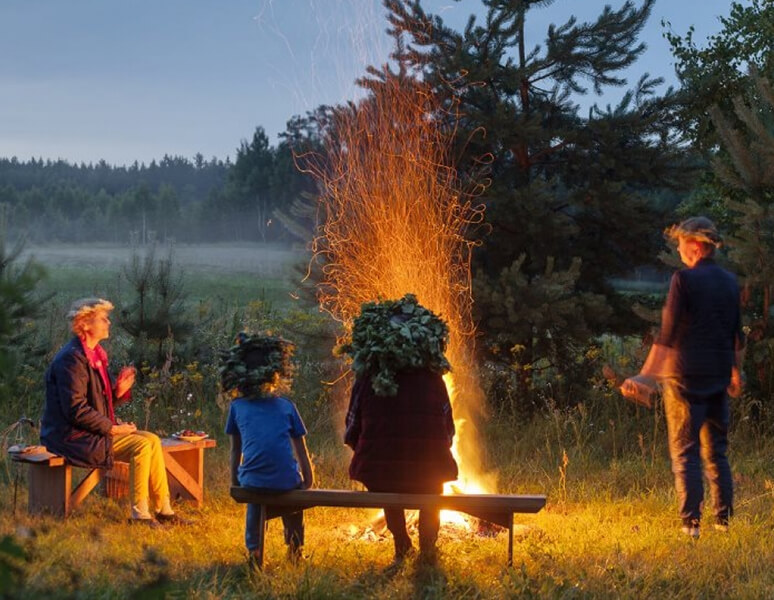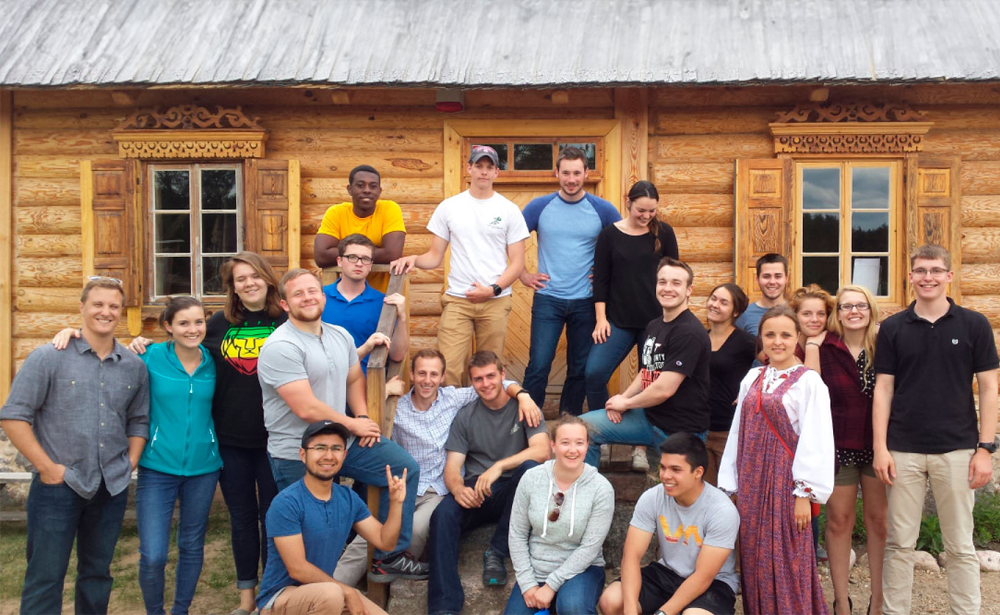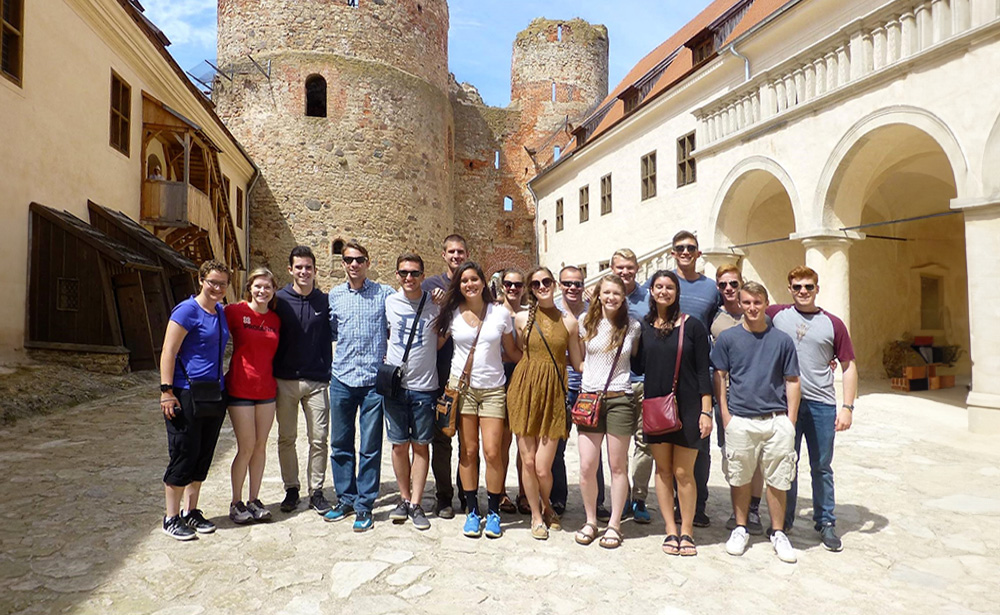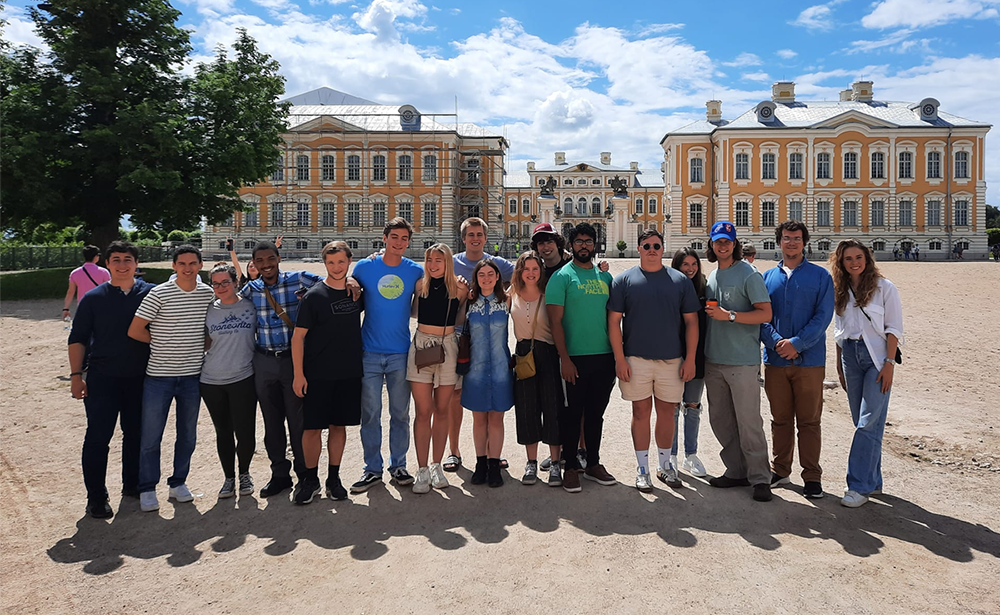Ligo in Latvia and Ivan Kupala Day in Russia
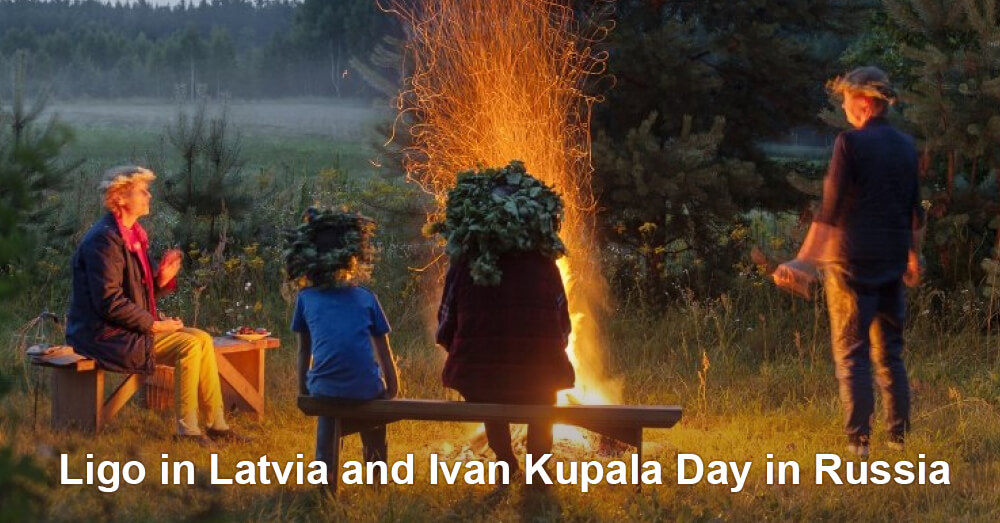
Ligo or Ivan Kupala Day is the same holiday, although in some countries it has a different name. Traditionally, Ligo is celebrated only in Latvia. In Russia, this holiday is called Ivan Kupala Day. In this article, we are going to look at the features of each holiday.
Ligo (Janis Day)
Ligo or another name – Janis Day is a Latvian popular holiday celebrating the summer solstice, whose traditions date back to ancient time. Its traditions are related to the Sun cult as well as preparations to festivals in honor of Janis, the God of Fertility. Traditionally the holiday is celebrated on June 23-24.
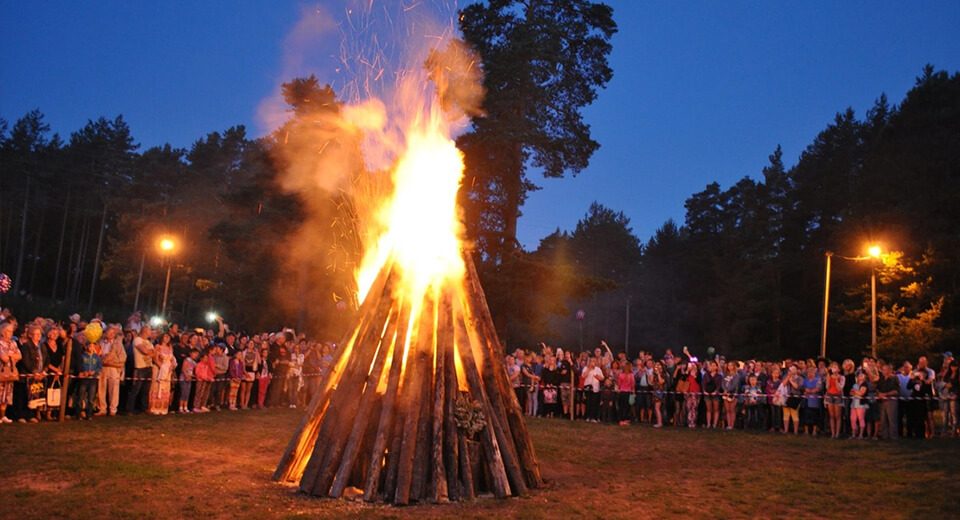
On this day people used to collect various herbs, as it was believed that on Ligo day they acquire medicinal properties. People also wove wreaths of oak leaves so to wear on their heads and to decorate domestic animals and houses.
Legends related to Ligo
According to old traditions, people lit bonfires on hills, which personified the victory of the sun over darkness. On this day, people were singing and dancing around the bonfires. They believed that it contributed to the fertility of the fields. People who were in love with each other jumped over the bonfire holding their hands. It was believed that if during their jump, the couple quitted the hold of each other’s hands, their relationships wouldn’t last long.
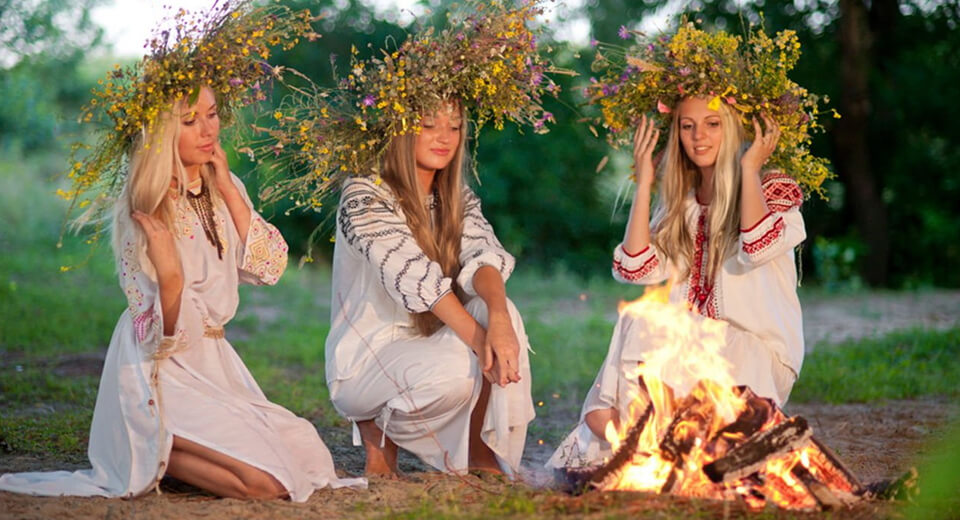
Another tradition was when it got darker, all girls gathered and let their wreaths down the river. The legend has it, those girls whose wreaths didn’t sink into the water, would become brides in the fall. The tradition of looking for a fern flower is also associated with this day. According to popular belief, if young people go to the forest on Ligo night and find a magical fern flower, they will find their true love.
How Ligo is celebrated now
Nowadays, on Ligo Day, there are a lot of fairs, festivals, and celebrations organized in all cities in Latvia. June 23 and 24 are official days off and Ligo is one of the most interesting holidays celebrated in Latvia. Moreover, all people whose names are Liga and Janis celebrate their name’s day.
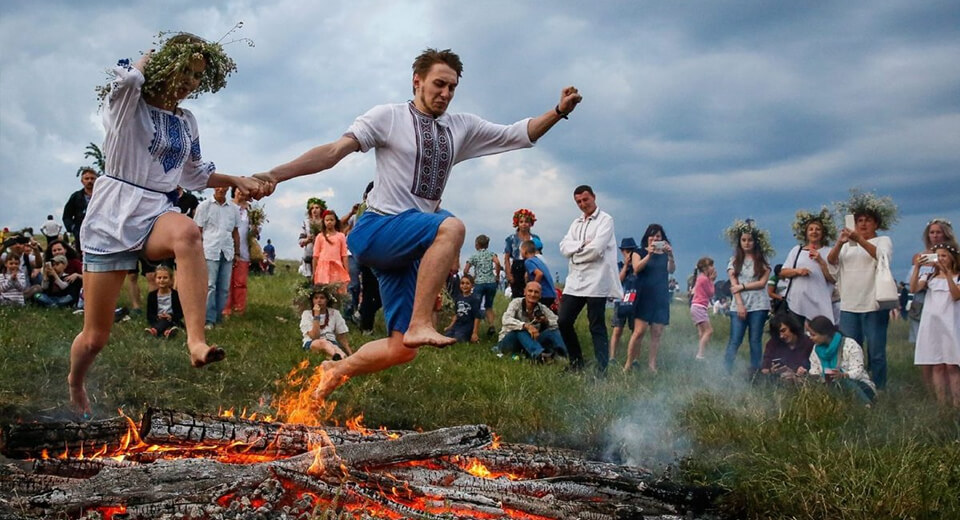
Caraway cheese and barley beer are traditional Ligo food. Over time, however, Latvian holiday menu started to include such popular dish as shashlik.
Ivan Kupala Day
Ivan Kupala Day or Kupayla is a national holiday of the Eastern Slavs, which, like Ligo is dedicated to the summer solstice. In Russia, Ivan Kupala Day is celebrated on July 6-7.
Rituals related to Ivan Kupala Day
Since ancient times, Ivan Kupala Day is considered to be a holiday of the Sun, summer, and green mowing. During this pagan celebration people used to perform various rituals related to purification and washing. It was believed that if a person bathes in a pond, lake, or river, he will get rid of all disease.
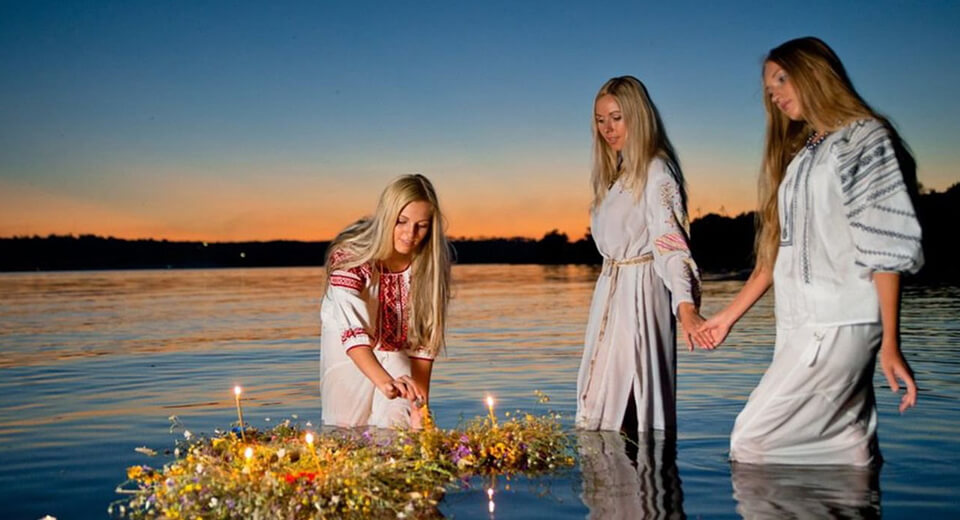
Ancestors of the Slavs also believed that on the night of Ivan Kupala all evil spirits, goblins, mermaids, water and house spirits, etc. go out, but water and fire acquire magical powers. On Ivan Kupala Day all water was considered magic, even dew, which both men and women used to wash themselves.
Traditions of Ivan Kupala celebration are closely related to Traditions of Ligo. One cannot imagine this holiday without collecting herbs or jumping over bonfires. People believed that if they jump over a bonfire they’ll get rid of diseases and evil-eye. Young woman also liked this entertainment. They thought it might help them to become more beautiful and attractive.
A fern flower was also very popular. According to the legend, a fern flower blossoms only during the shortest night and it opens its petals at midnight. A person who finds this flower will have all his dreams fulfilled.
How Ivan Kupala is celebrated now
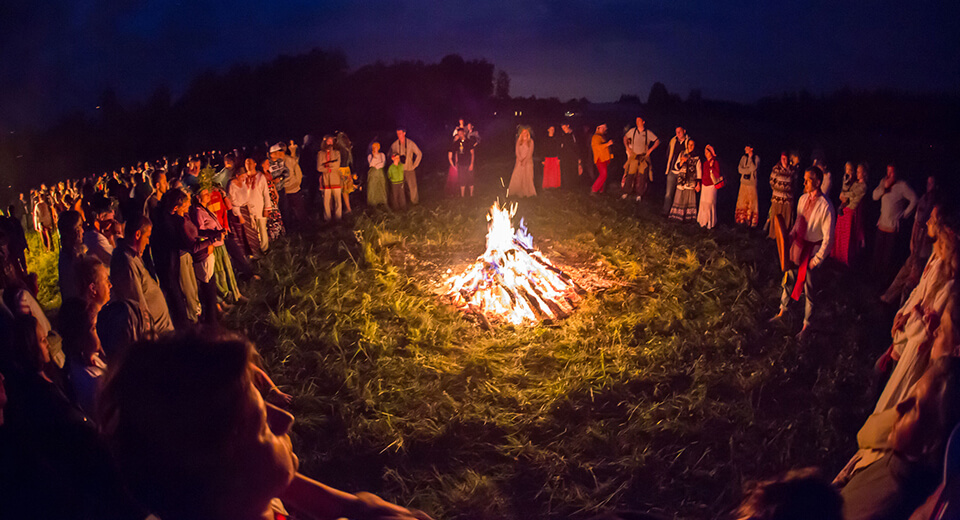
People start celebrating Ivan Kupala on July 6 in the evening after the sunset. Many old traditions still exist and are observed. A lot of Russians get together and celebrate Ivan Kupala Day at the river or lake banks. There are lots of concerts in the cities. People make oak-leaf crowns, lit bonfires, and sing and dance in a ring.
That’s the end of the article. We hope you’ve learned a lot of new information about Ligo celebration in Latvia and Ivan Kupala celebration in Russia. We’d be interested to know what you think of this holiday. Leave your comments below!
You may be interested
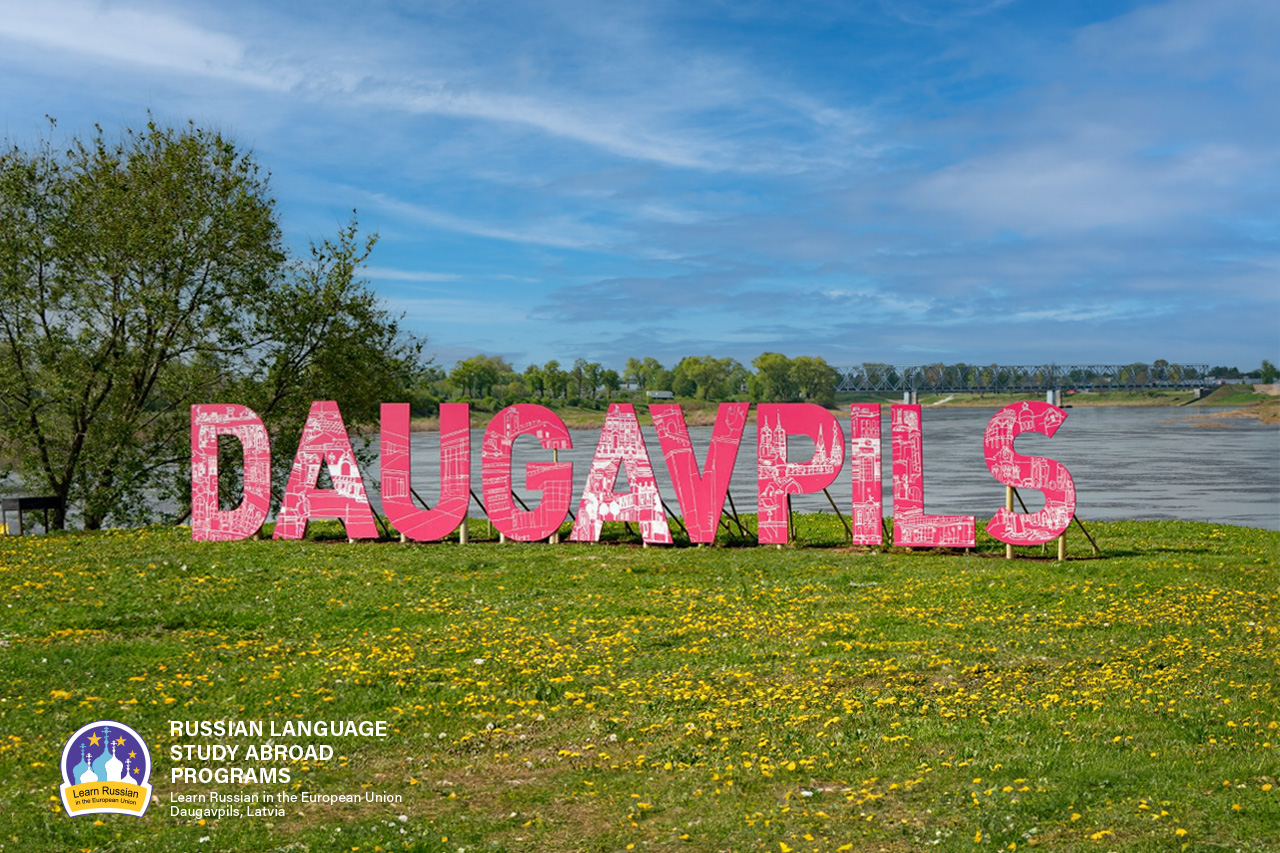
Why do people speak Russian in Daugavpils?
As it seems to us, Daugavpils is the best place to learn Russian now, because our city is situated in the EU and NATO, but at the same time 90% of the city’s population speak Russian at home.
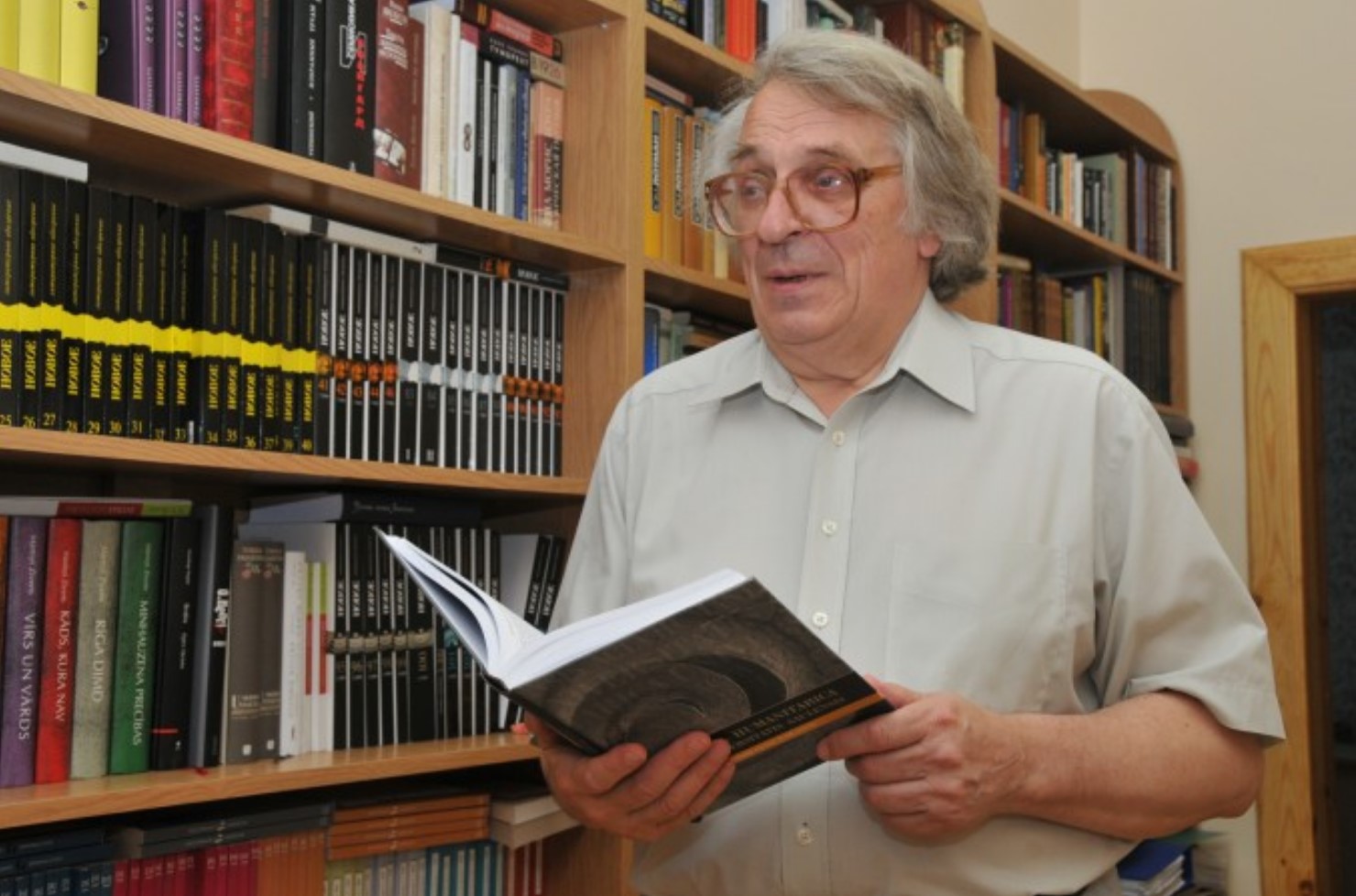
ЭТЮД О ДВИНСКЕ
Etude on Dvinsk by F.Fedorov
The Baltic region is one of the most catastrophe prone regions of the 2nd millennium, especially its second part; it is the centre of attraction of ‘geopolitical’ interests of the European world. Probably the most tragic fate has befallen to the eastern part of the present Latvia and its multi-titled town of Dinaburg – Dvinsk – Daugavpils. During its 730 years long history, the town went through five rather autonomous periods of development, five different lives (German, Polish, Russian, Latvian, Soviet), and at the beginning of the 1990s it entered into the 6th period.
The history of Dinaburg – Dvinsk – Daugavpils is the history of five attempts by the town to begin its life anew; and this is determined not only by the fact that the town was four times burned down and had to start life from scratch, but first and foremost because each of these periods was characterized by a total change of ethnos and the socio-cultural field.
The present article deals with the cultural space of the town in one of the most efficient periods of its development – from the 1860s till World War I.


